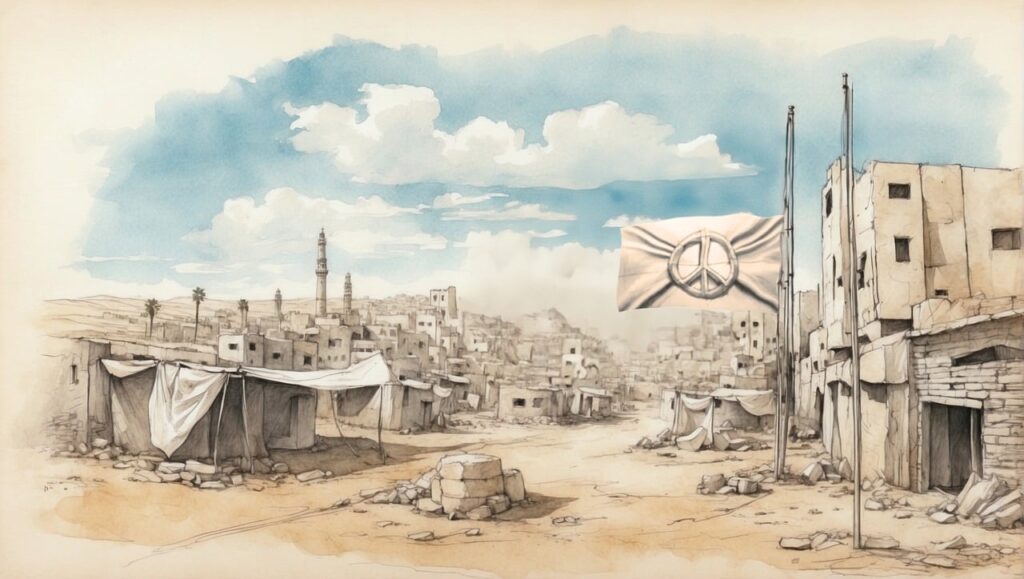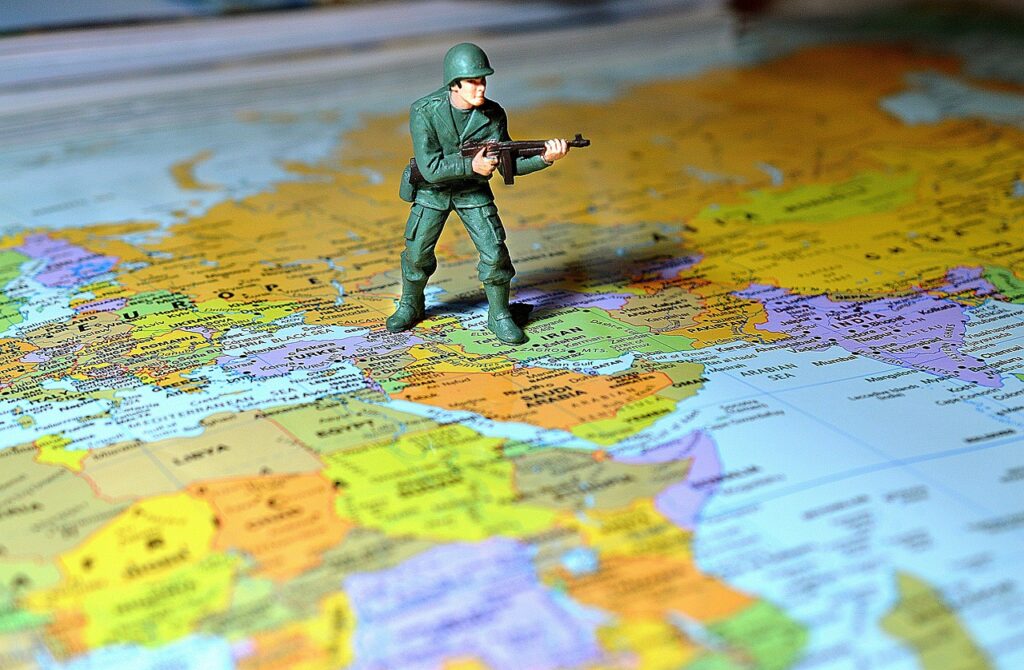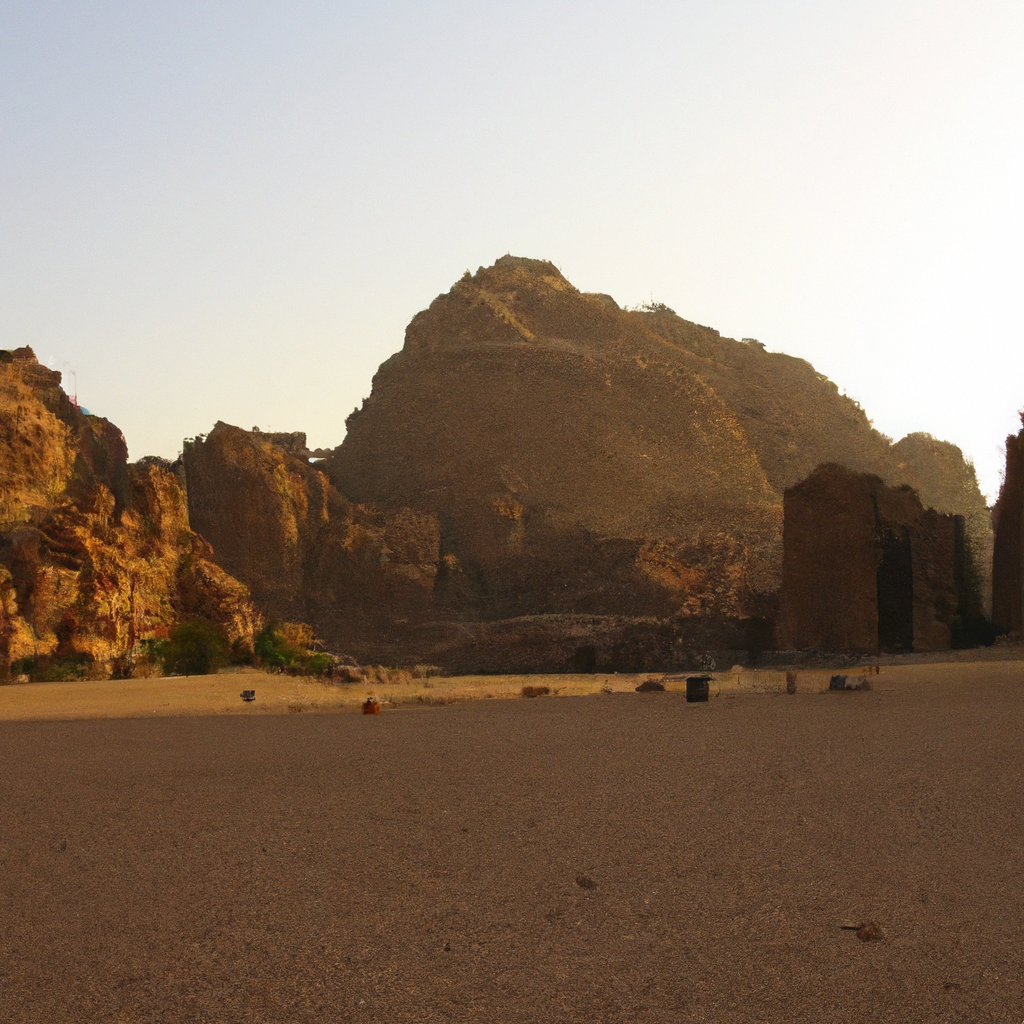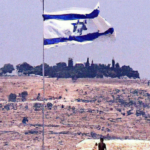In the ongoing conflict between Israel and Palestine, it is crucial to understand the dynamics of the neighboring countries and their relationship to the conflict. Two such countries, Jordan and Egypt, have played significant roles in this long-standing issue. Jordan shares a border with both Israel and the West Bank, making it a key player in negotiations and peace processes. Egypt, on the other hand, shares a border with the Gaza Strip, which has faced its fair share of conflict. By examining how these neighboring countries relate to the conflict, we can gain a deeper understanding of the complexities and potential avenues for resolution in the region.
Historical Background
Israel holds immense biblical significance to the Jewish people. Throughout the ages, the land of Israel has been regarded as the ancestral homeland for the Jewish community. The Bible, a sacred text in Judaism, includes numerous stories and events that took place in this region, further cementing its significance to the faith.
Israel’s cultural history is also rich and diverse. Over thousands of years, various civilizations and empires have left their marks on the land, contributing to its unique heritage. From ancient Israelite kingdoms to Roman rule, Byzantine Christianity, Islamic conquests, and Ottoman control, the cultural fabric of Israel has been shaped by these historical influences.
Following centuries of forced exile and persecution, there was a strong yearning among Jewish communities around the world to return to their ancestral homeland. This desire for a homeland culminated in the Zionist movement, which sought to establish a national homeland for the Jewish people. In 1948, the modern State of Israel was born, marking a significant milestone in Jewish history and allowing Jews from all over the world to finally return and rebuild their lives on their ancestral land.
The Jewish connection to the land of Israel is deeply rooted in religious, historical, and cultural ties. For Jews, Israel is not just a physical territory but a spiritual and emotional bond that shapes their identity and sense of belonging.
Jordan
Jordan, as one of Israel’s neighboring countries, has played a significant role in the Israeli-Palestinian conflict. The country’s influence on the conflict is multifaceted, stemming from historical, political, and demographic factors.
Historically, there have been complex relations between Jordan and Israel. After the 1948 Arab-Israeli War, Jordan occupied the West Bank, including East Jerusalem, which had a predominantly Palestinian Arab population. This led to a turbulent period with Israel, marked by intermittent periods of conflict and uneasy peace agreements.
In more recent years, Jordan’s relations with Israel have become more stable. The two countries have forged diplomatic ties and cooperate on various levels, including security, water resource management, and economic exchanges. Jordan recognizes Israel’s existence and works towards maintaining a peaceful coexistence.

Egypt
Egypt, another neighboring country, has also played a significant role in the Israeli-Palestinian conflict. The historical relations between Egypt and Israel have been characterized by both hostility and peace.
Prior to the signing of the historic peace treaty in 1979, Egypt was one of Israel’s staunchest adversaries. In 1948, Egypt was one of the Arab countries that participated in the war against Israel. Subsequent conflicts, such as the Suez Crisis in 1956 and the Six-Day War in 1967, further strained relations between the two nations.
However, in a groundbreaking move, Egypt became the first Arab country to officially make peace with Israel. The peace treaty, signed at Camp David, ushered in a new era in their relationship. Since then, Egypt and Israel has maintained diplomatic ties, established cross-border cooperation, and collaborated on various issues of mutual interest.
Refugee Crisis
The Israeli-Palestinian conflict has had a significant impact on Jordan and Egypt, particularly in terms of the refugee crisis. Both countries have had to shoulder the burden of providing assistance and support to a large number of Palestinian refugees throughout the years.
Jordan, in particular, has a considerable Palestinian refugee population, with many Palestinians seeking refuge there during and following the Arab-Israeli wars. The influx of refugees has placed a strain on Jordan’s resources, infrastructure, and social fabric. However, Jordan has made efforts to support these refugees and has worked with international organizations to provide essential services and opportunities for them.
Egypt has also experienced waves of Palestinian refugees seeking shelter. Although the number of Palestinian refugees residing in Egypt is lower compared to Jordan, Egypt has implemented measures to support this vulnerable population. Egyptian authorities have provided healthcare, education, and humanitarian aid to Palestinian refugees within their borders.
Efforts from international organizations, such as the United Nations Relief and Works Agency for Palestine Refugees (UNRWA), have been instrumental in addressing the challenges faced by both Jordan and Egypt in managing the refugee crisis.

Security Concerns
As neighboring countries, both Jordan and Egypt share security concerns with Israel. Border security and terrorism are particularly significant in this context.
Maintaining secure borders is crucial for all three countries to safeguard their citizens and prevent the smuggling of weapons, drugs, and illegal activities. Cooperation between Israel, Jordan, and Egypt has been established to enhance border security through intelligence sharing, joint patrols, and the utilization of advanced technologies.
In the face of transnational terrorism and extremist ideologies, the three countries have joined forces to counter these threats. Information and intelligence sharing between their respective security agencies have been key in preventing and combating terrorism from affecting the region.
Economic Interactions
Trade relations and economic interactions between Israel, Jordan, and Egypt have evolved over time, presenting both challenges and opportunities for these neighboring nations.
Israel has developed trade relations with both Jordan and Egypt, contributing to economic growth and regional stability. Trade agreements and cooperation in various sectors, including agriculture, manufacturing, and technology, have fostered economic interdependence and mutual benefits.
Development projects and investments have also played a significant role in enhancing economic ties among these countries. Projects such as joint industrial zones, tourism initiatives, and infrastructure development have created opportunities for collaboration, economic growth, and job creation.

Diplomatic Initiatives
Diplomatic initiatives, mediation efforts, and peace talks have been ongoing in the quest for a resolution to the Israeli-Palestinian conflict. Regional collaborations involving neighboring countries like Jordan and Egypt have been instrumental in these efforts.
Neighboring countries, including Jordan and Egypt, have often served as mediators, facilitating negotiations between Israel and the Palestinians. Their involvement in peace talks and diplomatic initiatives has aimed to find common ground, foster understanding, and bridge gaps in order to achieve a lasting peace in the region.
Collaborations and dialogues involving a broader coalition of Middle Eastern nations have also been explored. These regional initiatives recognize the interconnectedness of the conflict and seek collective solutions that address the concerns and aspirations of all parties involved.
Cultural Exchange
Tourism and cultural relations between Israel, Jordan, and Egypt have the potential to promote understanding and dialogue among their populations.
Israel boasts a vibrant tourism industry, attracting visitors from around the world who come to explore its historical and religious sites. Visits to religious landmarks, such as the Western Wall and the Church of the Holy Sepulchre, offer pilgrims and tourists a deeper understanding of the significance of the region to various faiths.
Jordan and Egypt also possess rich historical and cultural heritage, attracting tourists with their ancient wonders, such as Petra and the Pyramids of Giza. Cultural exchange programs, festivals, and exhibitions provide opportunities for people from diverse backgrounds to learn from one another, appreciate their shared history, and foster connections.
Education and language programs are additional avenues for cultural exchange and understanding. Collaborative efforts in these areas can promote dialogue, tolerance, and appreciation for the diverse cultures and perspectives present in the region.

Water Resource Management
Water resources have been a point of contention in the region due to the arid nature of the landscape and the limited availability of water sources. Israel, Jordan, and Egypt share various water sources, leading to cooperation and occasional disputes over their usage.
Cooperative frameworks and agreements have been established to ensure the equitable allocation and management of shared water resources. These agreements focus on sustainable development, water conservation, and the prevention of water scarcity.
Engaging in joint projects, such as desalination plants, wastewater treatment, and irrigation systems, allows for efficient utilization of water resources and mitigates water-related conflicts.
Media and Public Perception
Media plays a significant role in shaping public perception and attitudes towards the Israeli-Palestinian conflict. Coverage of the conflict in neighboring countries like Jordan and Egypt influences how people perceive Israel and its actions.
The media’s portrayal of the conflict can be biased, depending on the outlet and the political context. This bias can reinforce pre-existing beliefs and narratives, making it crucial to promote balanced reporting that presents accurate and diverse perspectives.
Public opinion and attitudes towards the conflict can be influenced by media, education, and personal experiences. Promoting open dialogue, intercultural exchanges, and educational programs that foster critical thinking can facilitate a better understanding of the complexities of the conflict and contribute to a more empathetic and constructive approach towards resolution.
In conclusion, neighboring countries like Jordan and Egypt have distinct historical, political, and cultural relationships with Israel. These relationships have evolved over time, at times showcasing strained relations and conflicts, while also offering opportunities for cooperation, dialogue, and peace. The complexities of the Israeli-Palestinian conflict are deeply intertwined with the dynamics between these neighboring nations, necessitating collaborative efforts to address security concerns, economic interactions, cultural exchanges, and the pursuit of a lasting peace in the region.





